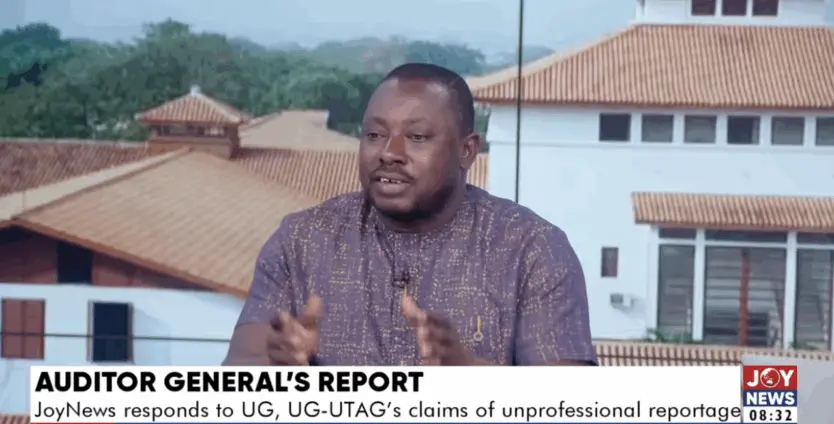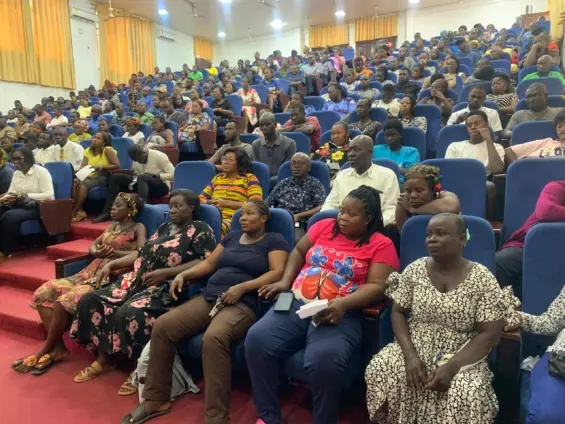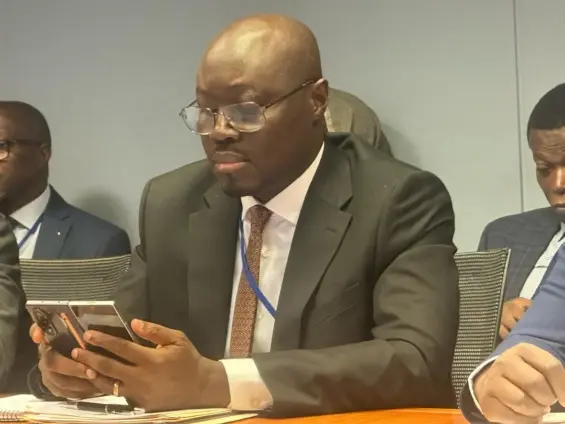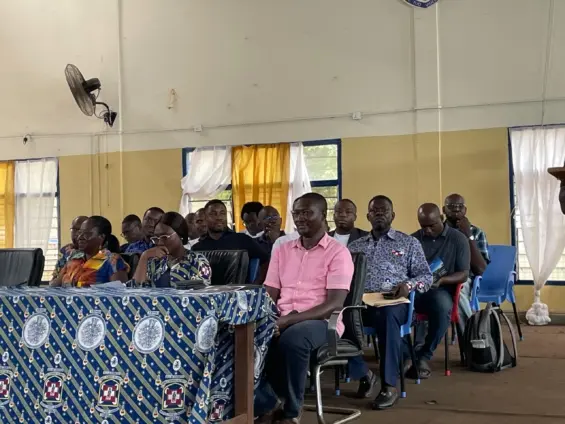A storm of controversy has erupted around the recent Auditor-General’s Report concerning the University of Ghana, with the University of Ghana chapter of the University Teachers Association of Ghana (UTAG-UG) vocally condemning the report. At the heart of their grievance lies a fundamental accusation: that the Audit Service, in preparing the Auditor-General’s Report, denied the University of Ghana its due right to respond to the initial findings. This denial, UTAG-UG argues, constitutes a breach of established procedures and ethical standards, casting a shadow over the report’s legitimacy.
According to UTAG-UG, the process surrounding the Auditor-General’s Report was deeply flawed. The association alleges that the University of Ghana was not afforded the opportunity to address preliminary findings before the report was finalized and made public, a deviation from what they claim are standard auditing practices. This has raised serious questions about fairness, transparency, and the integrity of the audit process itself.
“Why we are here is because when the audit report was finalised—or when the initial report was done—the university management was not given a chance,” stated Jerry Joe Harrison, a representative of UTAG-UG, during an appearance on JoyNews’ AM Show. This assertion underscores UTAG-UG’s central argument: that the University of Ghana was unfairly silenced.
Harrison further elaborated on what he described as the standard protocol for such audits. “The standard audit procedure is this: I audit you, and when I have my findings, I bring them to you…” he explained. This expected dialogue, where the auditee has the chance to provide context, clarification, or contest findings, was allegedly bypassed in the case of the Auditor-General’s Report on the University of Ghana, according to UTAG-UG.
UTAG-UG contends that the Auditor-General’s actions not only contravene established auditing protocols but also violate legal standards. “It is not at the whim of the Auditor-General. It is the regulation, it is by law…” Harrison asserted, emphasizing the mandatory nature of allowing the audited party to respond. The association believes that this denial of due process undermines the entire audit and its subsequent findings.
The ethical implications of proceeding without allowing the University of Ghana to respond are significant, according to UTAG-UG. The association argues that it raises questions about the fairness and impartiality of the Auditor-General’s Report. Without the University’s perspective included, the report risks presenting an incomplete or even biased picture, potentially damaging the institution’s reputation.
The Auditor-General’s Report itself contains allegations of financial and administrative irregularities at the University of Ghana. These allegations have sparked significant public debate and concern, with many calling for accountability and transparency. UTAG-UG’s intervention, however, adds a new dimension to the controversy, shifting the focus from the specific allegations to the process by which those allegations were arrived at.
In Ghana, independent audits play a crucial role in ensuring transparency and accountability in public institutions. They are intended to safeguard public funds and promote good governance. However, the effectiveness of these audits hinges on their perceived fairness and adherence to due process. Flawed or biased audits can erode public trust and undermine the very principles they are meant to uphold.
UTAG-UG’s core argument centers on the alleged denial of due process to the University of Ghana in the Auditor-General’s Report. This raises fundamental questions about transparency, fairness, and adherence to legal standards in public audits. As the controversy unfolds, it is clear that a fair and balanced investigation, one that considers all perspectives, is essential to upholding the integrity of the auditing process and maintaining public trust.
Image Source: MYJOYONLINE






















